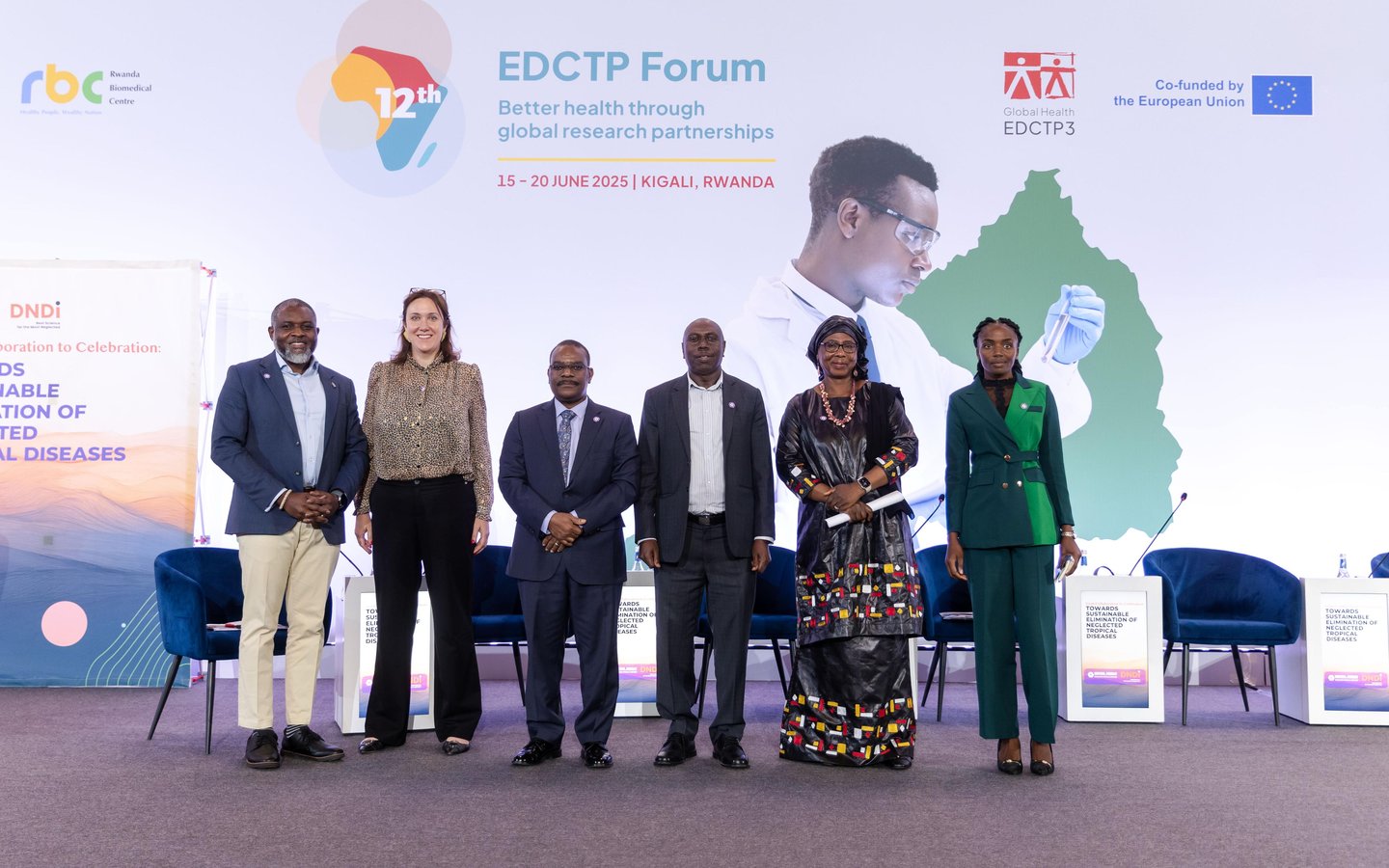Kigali, Rwanda – 16 June 2025
At a high-level session during the EDCTP Forum in Kigali today, ministers of health, global researchers, donors, and frontline health workers gathered to celebrate recent milestones in the elimination of neglected tropical diseases (NTDs) and to renew calls for continued investment in research and development.
Titled “From Collaboration to Celebration: Towards Sustainable Elimination of Neglected Tropical Diseases”, the interactive event highlighted the transformative power of science, equity, and political will in addressing diseases that continue to affect over one billion people globally, particularly in marginalised communities.
Opening the session, Rwanda’s Minister of Health Dr Sabin Nsanzimana offered powerful reflections on how language and prioritisation can shape the future of global health.
“Why do we even call them neglected tropical diseases? These are important and priority diseases. Can we call them the important diseases, because they affect people’s lives, children and mothers in communities with limited access to water? We should invest there as a priority.”
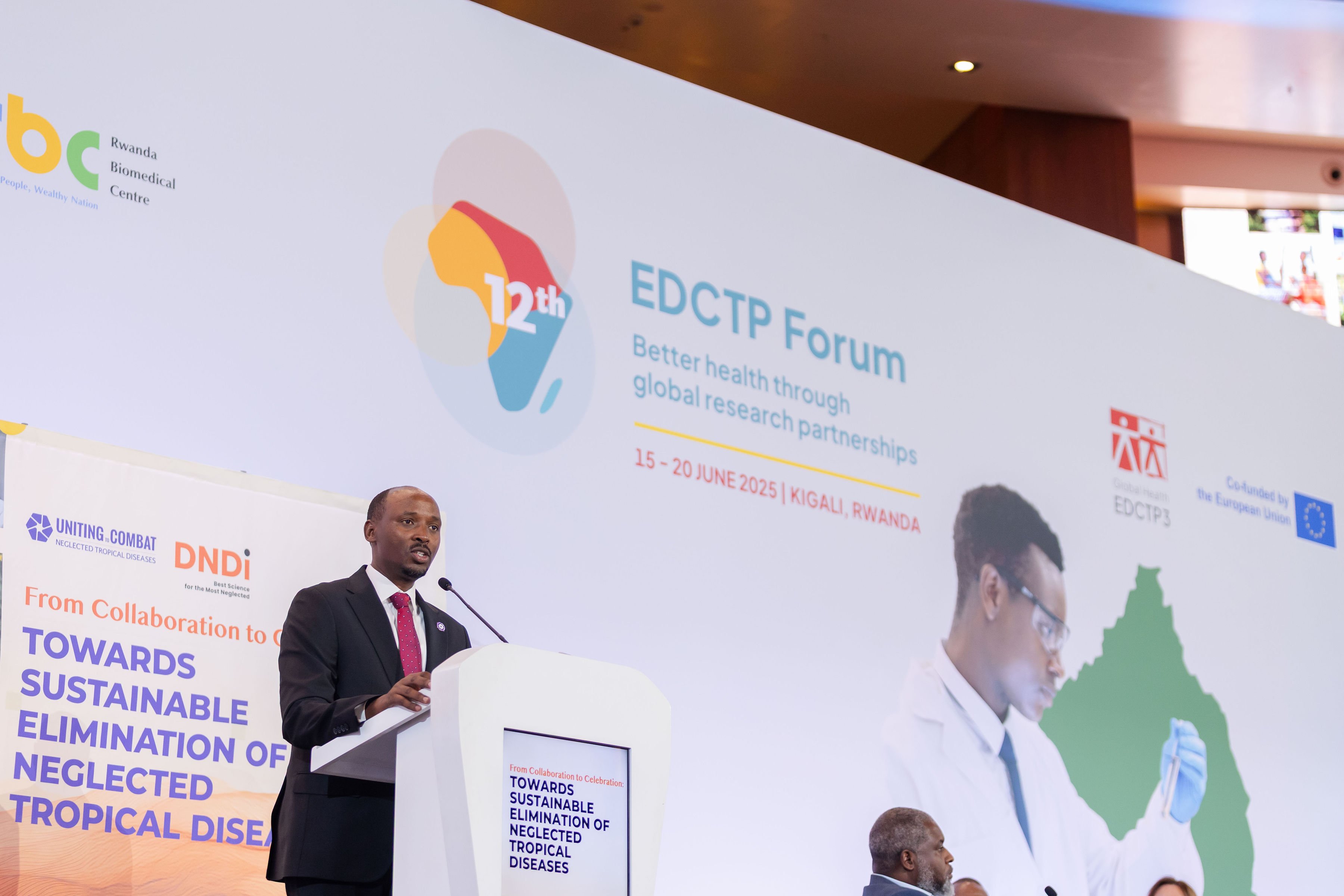
Dr Nsanzimana expressed a deep personal and political commitment to ending them, stating:
“I believe the call for action should be for us to prioritise these diseases. It’s about equity. It’s about giving what we have and sharing with those most in need.”
He closed with a message of hope and determination:
“Can we end these diseases? I believe it’s possible. It’s not a dream, it’s a decision we can make. You have our support from the policymaking levels. I hope that soon, we will be ending NTDs.”
A short film set the tone by showcasing achievements since the launch of the Kigali Declaration on NTDs in 2022. The event then moved into a series of keynote addresses highlighting how African-led research and partnerships are driving real progress on the ground.
Dr Oumar Diouhé Bah, Guinea’s Minister of Health, received strong applause as he announced the country’s elimination of sleeping sickness as a public health problem in January 2025.
“This is not a miracle. It is the result of years of investment in research, strong political will, and deep collaboration between partners.”
EDCTP-supported research, he explained, played a key role in the development of new diagnostic tools and safe oral treatments such as fexinidazole and acoziborole, two drugs developed to treat sleeping sickness more effectively, making it possible to reach patients in remote areas, before the disease could advance.
Watch the full video message from Dr Bah here:
The role of funding and research leadership was further highlighted by Dr Michael Makanga, Executive Director of the Global Health EDCTP3 Joint Undertaking.
“Investing in NTDs is not only the right thing to do, but one of the most effective ways to strengthen health systems and build resilience”
Earlier this year a new €46 million investment was launched under the Global Health EDCTP3 programme to accelerate clinical trials and implementation research, designed around country-led priorities.
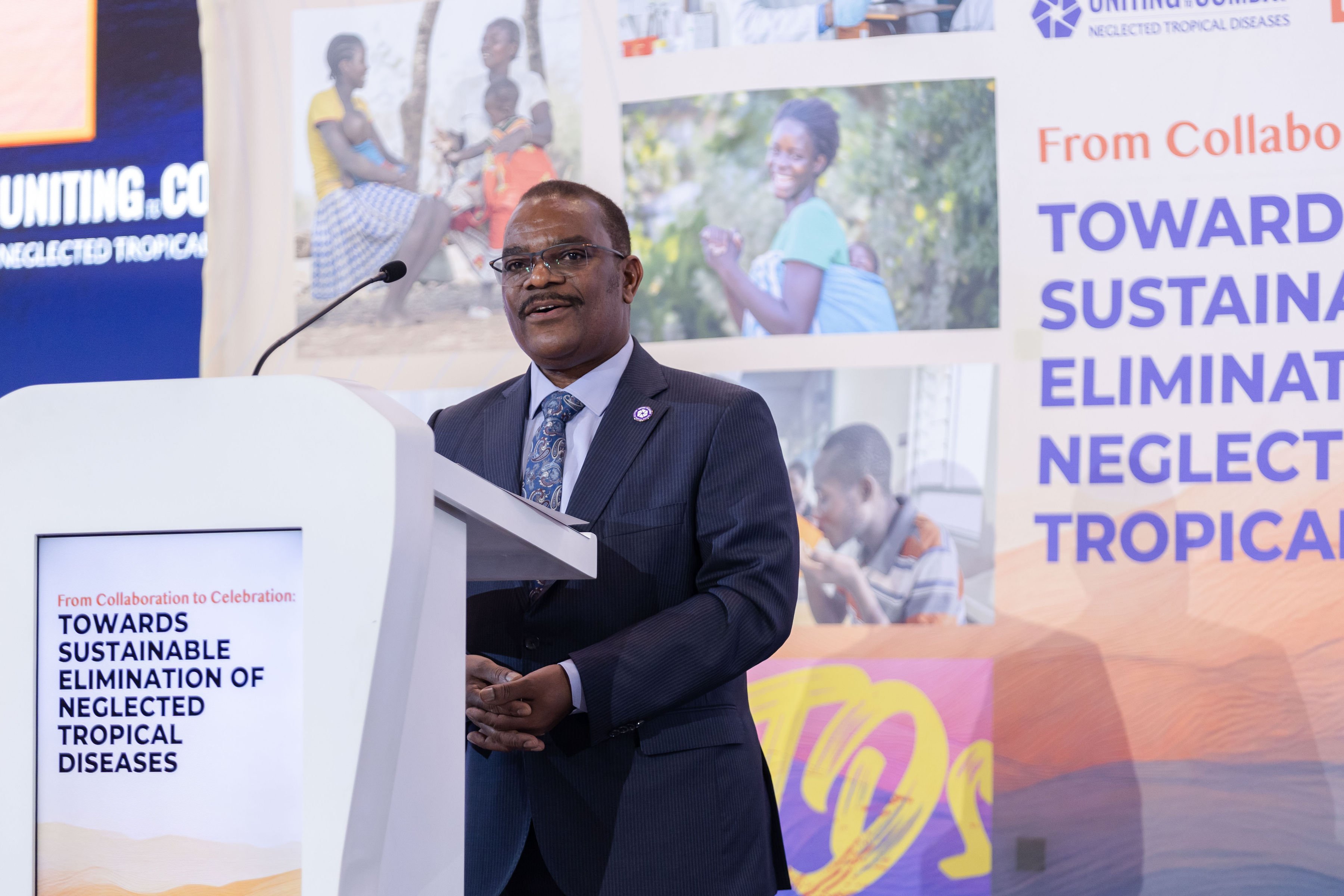
“We cannot afford to wait. Timely intervention is the difference between progress and persistence. Let us act swiftly to ensure every new tool reaches the communities it was designed to serve.”
Building on Dr Makanga’s call for investment, Prof. Samuel Kariuki, Continental Lead Africa and Eastern Africa Director, Drugs for Neglected Diseases initiative emphasised how innovation and partnerships have already led to tangible medical breakthroughs:
“One remarkable achievement is the development of fexinidazole, an oral drug for sleeping sickness. This shifted treatment away from an arsenic-based therapy that tragically caused the death of 1 in 20 patients, offering a safer and more effective alternative.”
He added that research is underway into a single-dose oral drug for sleeping sickness, and a completely new oral treatment for visceral leishmaniasis that could be administered at home:
“These advancements are critical for affected communities and could help us achieve the last mile of elimination.”
Dr Isatou Touray, Executive Director of Uniting to Combat NTDs and former Vice President of The Gambia, underscored the transformative role of African leadership through the Kigali Declaration on NTDs. Launched by President Paul Kagame at the Kigali Summit in 2022, the Declaration shifted the global perspective to country-led commitments rooted in the realities of affected communities.
“The Kigali Declaration was never just a pledge—it is a foundation for action. It has already mobilised over $1.8 billion in financial commitments and 28 billion donated treatments. But we must keep going.”
Dr Touray praised EDCTP’s endorsement and recent €46 million research investment as key steps forward, urging continued leadership, collaboration and investment to turn research into real-world change.
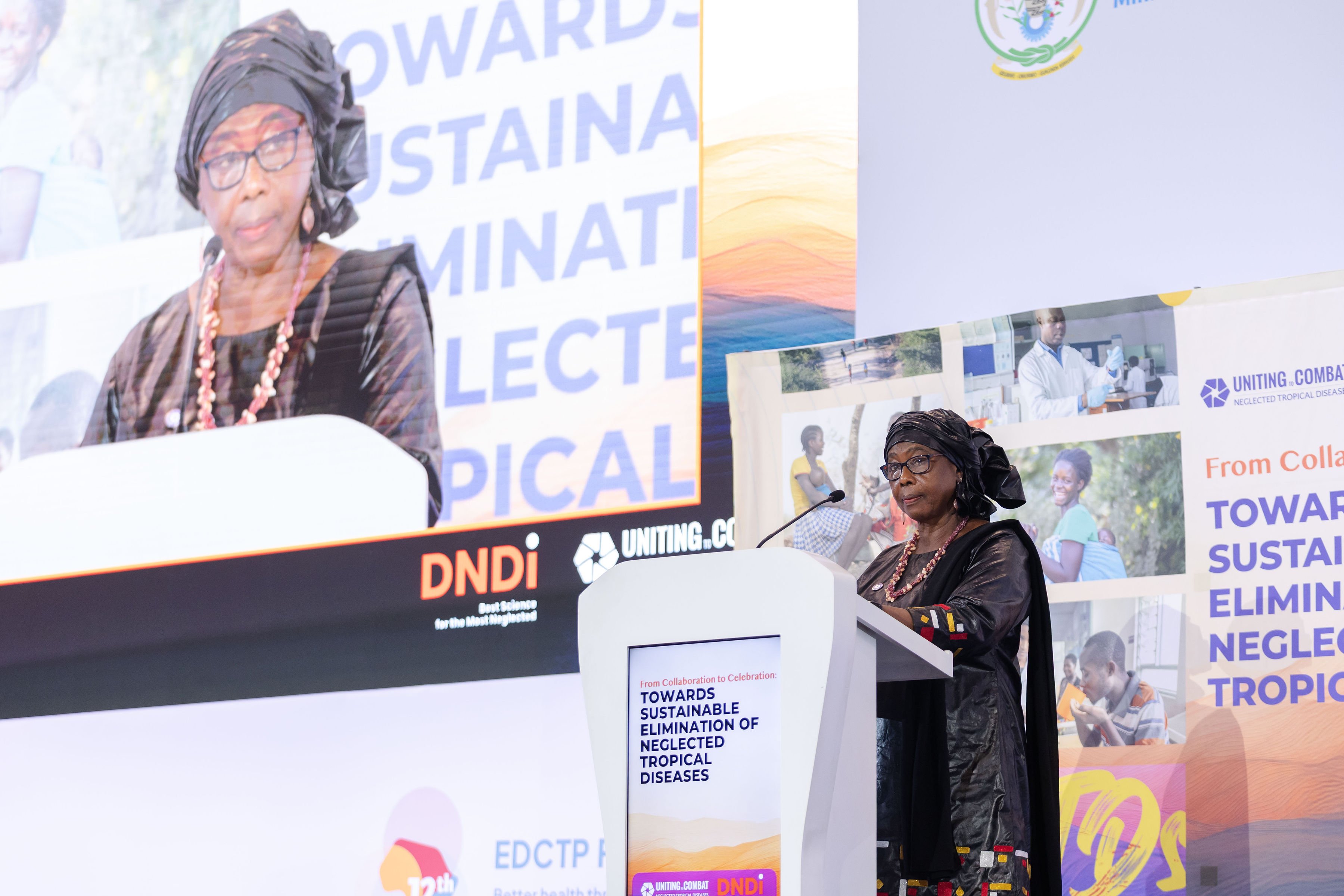
The event concluded with a moving reflection from Priscila Chebjira, who brought a frontline perspective as a nurse from Amudat Hospital in Uganda. Priscila shared her experience treating patients with kala-azar (visceral leishmaniasis).
“Many patients walk for days to reach Amudat Hospital, some crossing borders. By the time they reach us, patients are often in critical condition. Previously, kala-azar treatment required 30 painful injections of SSG, which was toxic. Today, thanks to research and partnerships, we are using the PM/SSG treatment for just 17 days, this combination is more effective and has significantly improved patient outcomes. These breakthroughs have been made possible through collaboration among various teams, governments, research institutions, and international organizations. Eliminating Kala-azar and other neglected diseases requires various stakeholders to work together. Involving communities and frontline workers like me in this process is key to long-term success.”
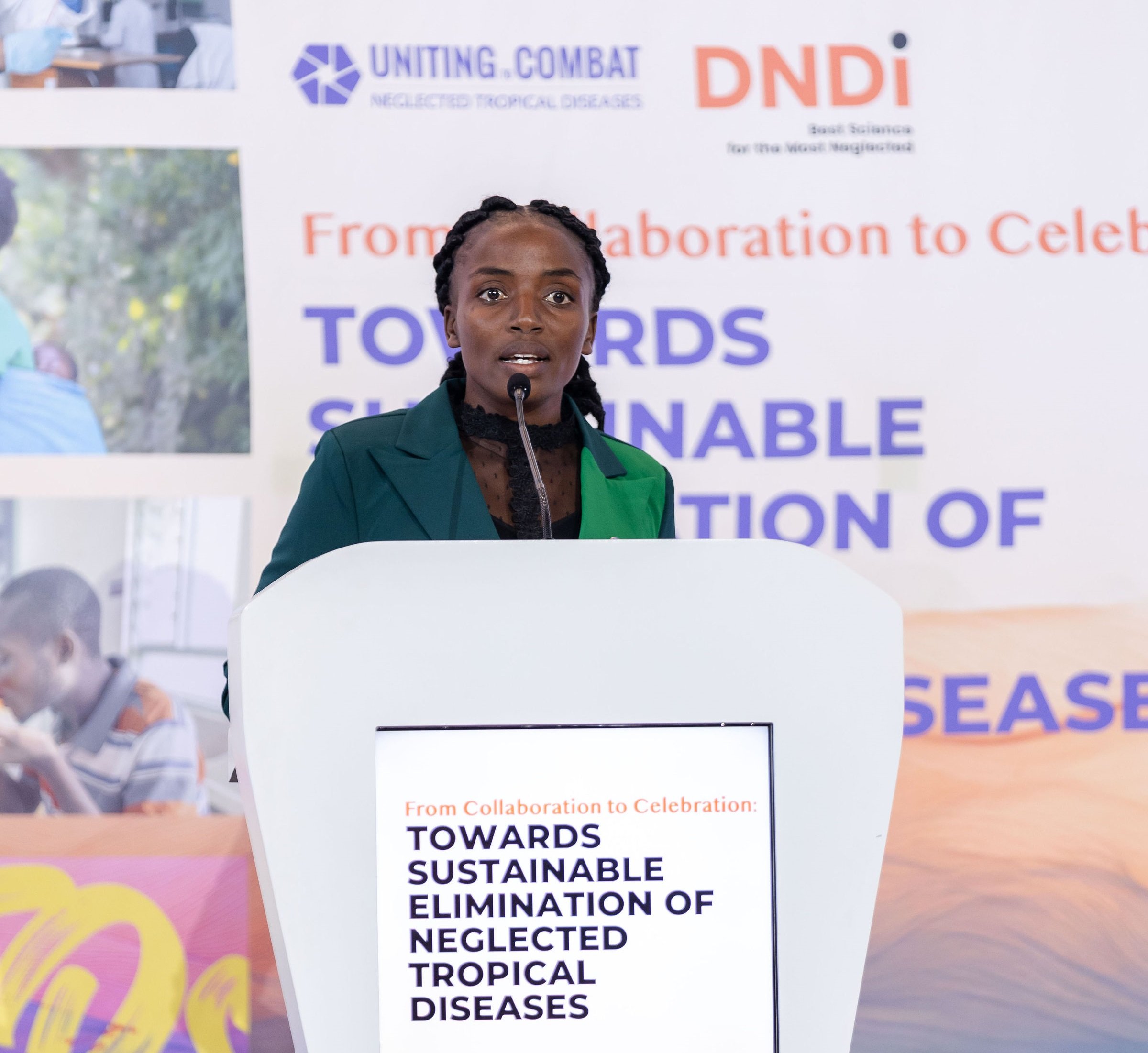
Moderated by Dr John Amuasi, Executive Director of the African Research Network for NTDs, the session united diverse voices under a shared vision: ending NTDs for good.
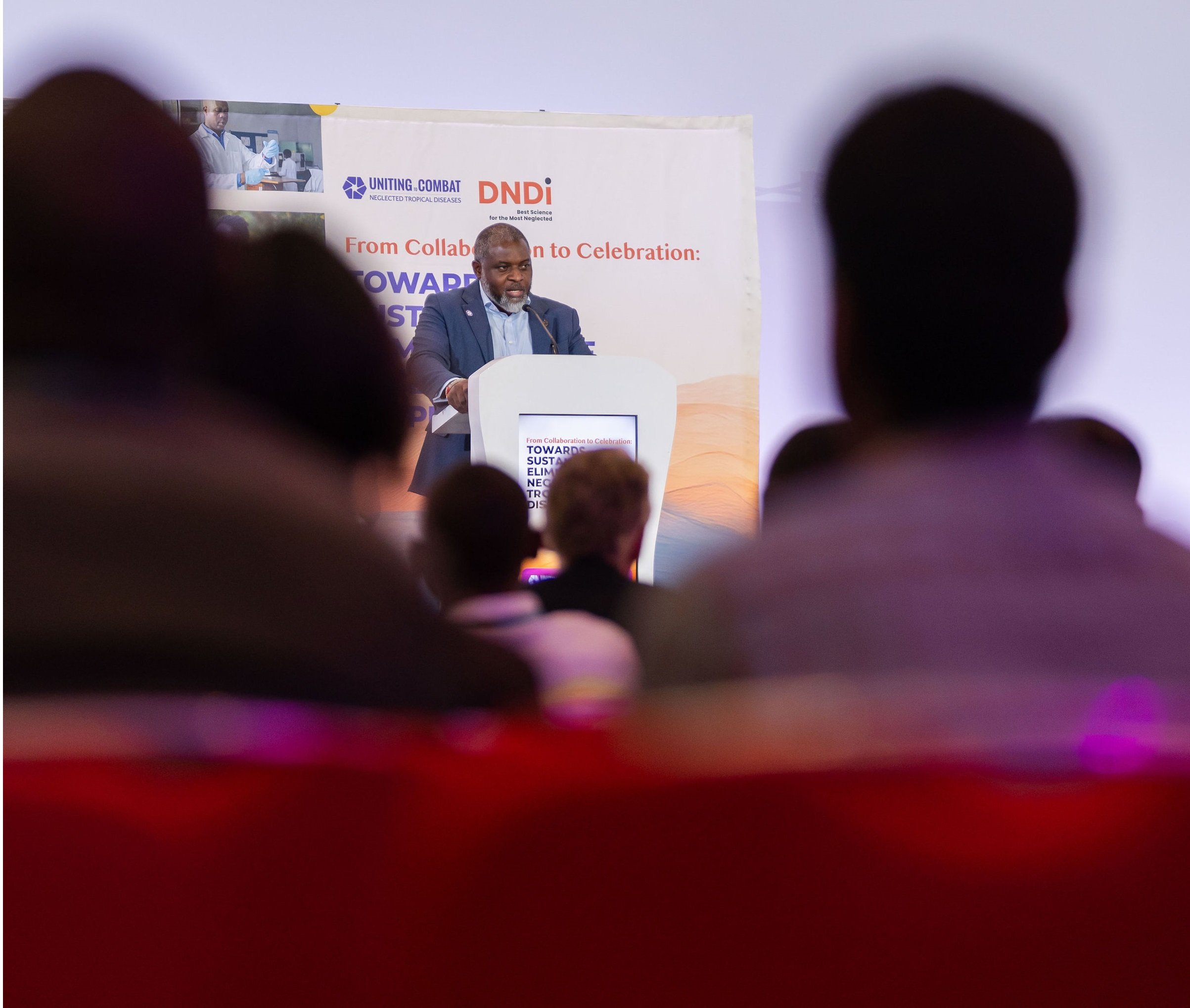
With 56 countries having now eliminated at least one NTD, and growing investment in African-led research, this year’s EDCTP Forum sent a powerful message: elimination is not a dream, it is a decision, and one being led by the African continent.
Watch the full session live below:
